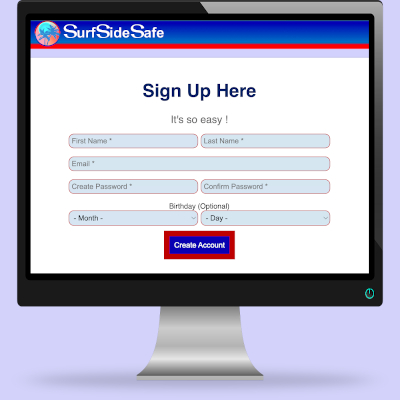Forgive and Forget Applies to Yourself as Much as Others |
 Self Help
Self Help
Self-forgiveness is the act of letting go of resentment, shame, or guilt towards oneself for past mistakes or perceived failures. It's about accepting our imperfections and recognizing that we are all fallible human beings. Self-forgiveness allows us to release the emotional burden we carry and create space for self-compassion and personal growth.
Self-forgiveness is important because it liberates us from the self-imposed prison of guilt and shame. When we hold onto past mistakes, we prevent ourselves from moving forward and embracing new opportunities. By forgiving ourselves, we open ourselves up to self-love, self-acceptance, and the ability to learn from our experiences.
Practicing self-forgiveness promotes mental well-being by reducing stress, anxiety, and depression. When we forgive ourselves, we free our minds from negative thoughts and self-criticism. This allows us to focus on the present moment and cultivate a positive mindset.
Forgiving ourselves heals emotional wounds and allows us to let go of bottled-up emotions. Holding onto resentment towards oneself is often an obstacle to personal growth and happiness. When we forgive ourselves, we create space for self-compassion and emotional healing.
Self-forgiveness is a catalyst for personal growth. By letting go of past mistakes, we open ourselves up to new opportunities and experiences. When we are not burdened by self-judgment, we can embrace challenges, learn from our mistakes, and strive for personal excellence.
Forgiving ourselves sets the stage for healthier and more fulfilling relationships with others. When we hold onto self-blame and guilt, it affects how we interact with others. By practicing self-forgiveness, we become more compassionate, understanding, and forgiving towards others, fostering stronger and more meaningful connections.
Admitting our mistakes is the first step towards self-forgiveness. Avoiding or denying our errors only prolongs the process of healing and growth.
Accepting responsibility for our actions is crucial in the process of self-forgiveness. Recognize that you are human and that making mistakes is a part of life.
Allow yourself to feel the emotions associated with your mistakes, but don't dwell on them. Acknowledge them, express them constructively, and then let them go.
Treat yourself with kindness, love, and understanding. Understand that everyone makes mistakes, and value yourself enough to forgive and move forward.
Instead of dwelling on past errors, focus on the lessons they taught you. Use your mistakes as opportunities for growth and self-improvement.

Forgiving and forgetting applies to yourself as much as others. Self-forgiveness is a powerful practice that allows us to release the emotional burden of guilt, shame, and resentment towards ourselves. By practicing self-forgiveness, we enhance our mental well-being, promote emotional healing, foster personal growth, and improve our relationships with others. So, let go of the past, forgive yourself, and embrace a future filled with self-love, self-acceptance, and personal excellence.
Thank you for visiting us. Please visit us again. You are always welcome.
AND:
Remember! At SurfSideSafe, we are here to make your life much better.
Join SurfSideSafeCreating an account with SurfSideSafe is very easy.In a few minutes, you will have the best Social Media experience you have ever had in your life.  |

A calmer, safer, easier place to connect

Creating an account with SurfSideSafe is very easy.
In a few minutes, you will have the best Social Media experience you have ever had in your life.
